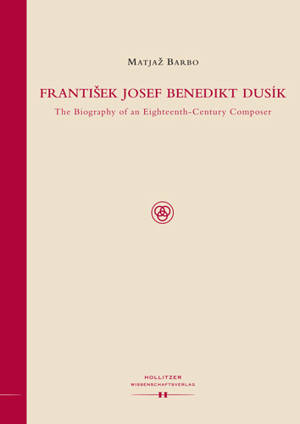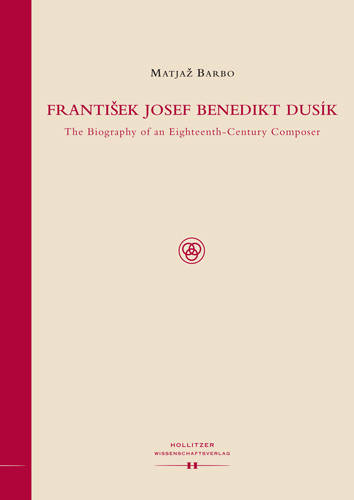
- Afhalen na 1 uur in een winkel met voorraad
- Gratis thuislevering in België vanaf € 30
- Ruim aanbod met 7 miljoen producten
- Afhalen na 1 uur in een winkel met voorraad
- Gratis thuislevering in België vanaf € 30
- Ruim aanbod met 7 miljoen producten
Zoeken
€ 24,95
+ 49 punten
Uitvoering
Omschrijving
The book discusses the life of the Czech composer Frantisek Josef Benedikt Dusík (1765-after 1817). Dusík was born into a musical family in Cáslav (Bohemia, today Czech Republik). After stuying in Prague he went to northern Italy. In the last decade of the eighteenth century he stayed in Ljubljana where he married and became one of the most important musical figures. He appeared as a musician in several famous Italian musical theatres of that time, from La Scala in Milan to San Benedetto in Venice. In Ljubljana he regularly appeared in musical theatre, was employed as an organist and regens chori in the cathedral and played a leading role in the Philharmonic Society. He wrote operas, church compositions, instrumental pieces, and foremost, symphonies, which represent the first Slovene works of that genre.The biography introduces readers to an almost forgotten musician, whose fortune led him to be a bandmaster of various Austrian infantry regiments, and at almost the same time a composer who praised Napoleon.
Specificaties
Betrokkenen
- Auteur(s):
- Uitgeverij:
Inhoud
- Aantal bladzijden:
- 144
- Taal:
- Engels
- Reeks:
- Reeksnummer:
- nr. 2
Eigenschappen
- Productcode (EAN):
- 9783990120026
- Uitvoering:
- Paperback
- Afmetingen:
- 172 mm x 242 mm
- Gewicht:
- 319 g

Alleen bij Standaard Boekhandel
+ 49 punten op je klantenkaart van Standaard Boekhandel
Beoordelingen
We publiceren alleen reviews die voldoen aan de voorwaarden voor reviews. Bekijk onze voorwaarden voor reviews.








